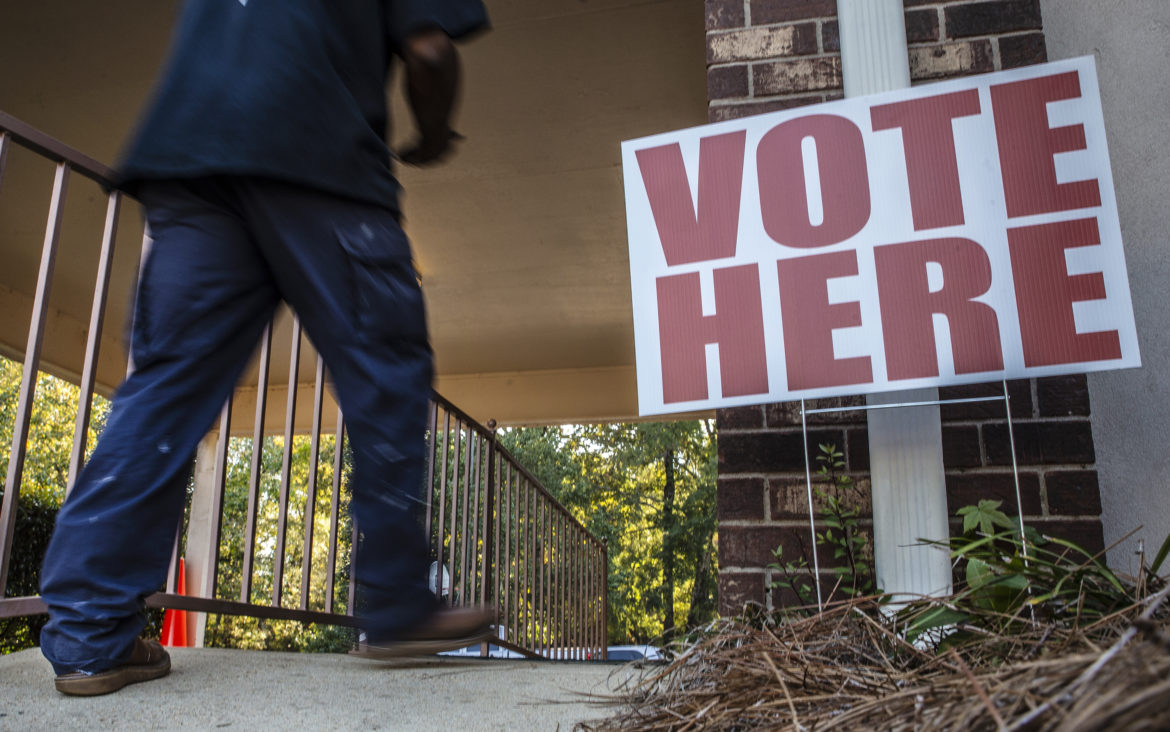For the first time in Mississippi’s history, a runoff election could determine the outcome of the governor’s race.
For more than a century, the state’s 1890 constitution required candidates for statewide office to accomplish two things to be seated: receive a majority of the votes cast in the election and win a majority of the state’s individual House districts.
If no candidate cleared both hurdles, the race was thrown to the state House of Representatives, where House members were under no obligation to vote according to the wishes of their constituents.
The authors of the 133-year-old constitution wrote the provision during the Jim Crow era with the intention of making it harder for Black candidates to win elected office.
But in 2020, after a federal judge strongly suggested the state change the constitutional provision, a majority of state lawmakers and the state’s voters decided to remove it for good.
READ MORE: For the first time in state history, voters remove Jim Crow provision from Mississippi Constitution
When Mississippians voted to scrap the provision in 2020, they also replaced it with the requirement that a candidate must earn only a majority of the votes cast to be elected. And now, if no candidate gets 50% of the vote on Election Day, the top two vote-getters move to a runoff election decided by voters.
This year, the first major statewide election cycle since the 2020 constitutional change, a runoff is possible for the current governor’s race.
Republican incumbent Gov. Tate Reeves is running for reelection, and he faces a strong challenge from Democrat Brandon Presley. But Gwendolyn Gray, an independent candidate, will also appear as a third option on the ballot alongside the two major party candidates.
Gray, a resident of the north Mississippi town of Sturgis, is a political newcomer. In her first interview of 2023, she told Mississippi Today this week that she realizes it will be next to impossible for her to win the governor’s race, and she’s concerned about the prospect of a runoff election.
Instead, the 58-year-old candidate said she’s planning to meet with her supporters next month and tell them which type of candidate they should vote, though she remained cryptic about the details of the future meeting.
“I want to tell them how important it is for them to vote and vote their conscience,” Gray said of her supporters. “I will definitely tell them, at this point, it is very difficult for me to win. I do not want to stop anyone else from winning.”
Election candidates, including third-party challengers, typically try to convince voters to elect them to public office. But Gray, instead, appears to be taking a different approach to campaigning.
Making matters even more curious, Gray said in the interview that she recently tried reaching out to one of the two candidates running for governor to share some of her concerns, but she received no response.
She declined to say which of the two candidates she tried to contact or what she specifically planned to discuss with them.
“I want some of my issues to be a concern of theirs,” Gray said.
If Gray’s presence on the Nov. 7 ballot triggers a runoff, it would be a major shakeup in the race for who occupies the Governor’s Mansion for the next four years.
Four years ago, Reeves won a first term as governor with just 52.2% of the popular vote — a few thousands votes more than the 50% threshold he’d need to overcome in 2023. And this year, several public polls show that Reeves, who has battled popularity problems during his first term as governor, is hovering around the 50% mark.
An August Mississippi Today/Siena College poll showed Reeves leading Presley by 52% to 41%, but no other public poll released this year has shown Reeves hitting 50%.
Presley, as the underdog, would undoubtedly attempt to capitalize on the extra three weeks of campaigning and use it as an opportunity to showcase a wounded incumbent to build a case that donors should contribute more money to his race.
And if Reeves, a Republican in a conservative Deep South state, cannot garner an outright majority of the votes cast on the first ballot, it could stand to weaken his political power and force him to burn through more money in his lofty campaign account.
Marvin King, an associate professor of political science at the University of Mississippi, told Mississippi Today that if the race does head to a runoff, it would still likely benefit Reeves instead of Presley.
“A runoff tends to skew toward older voters and more reliable voters, and those voters in this state tend to be Republican,” King said.
And while King believes a runoff would be a good opportunity for Presley to draw down even more fundraising dollars, he believes conservative organizations such as the Republican Governors Association would be willing spend more money to protect a Republican governor in Mississippi than progressive organizations would.
“Brandon Presley needs a knockout because because Gov. Reeves has a money advantage,” King said.
Absentee voting is currently underway for the election between the three candidates, and the general election will take place on Nov. 7. If no candidate receives a majority of the votes cast, a runoff election will happen on Nov. 28 — the Tuesday after Thanksgiving.
READ MORE: Mississippi Today’s 2023 Voter Guide

